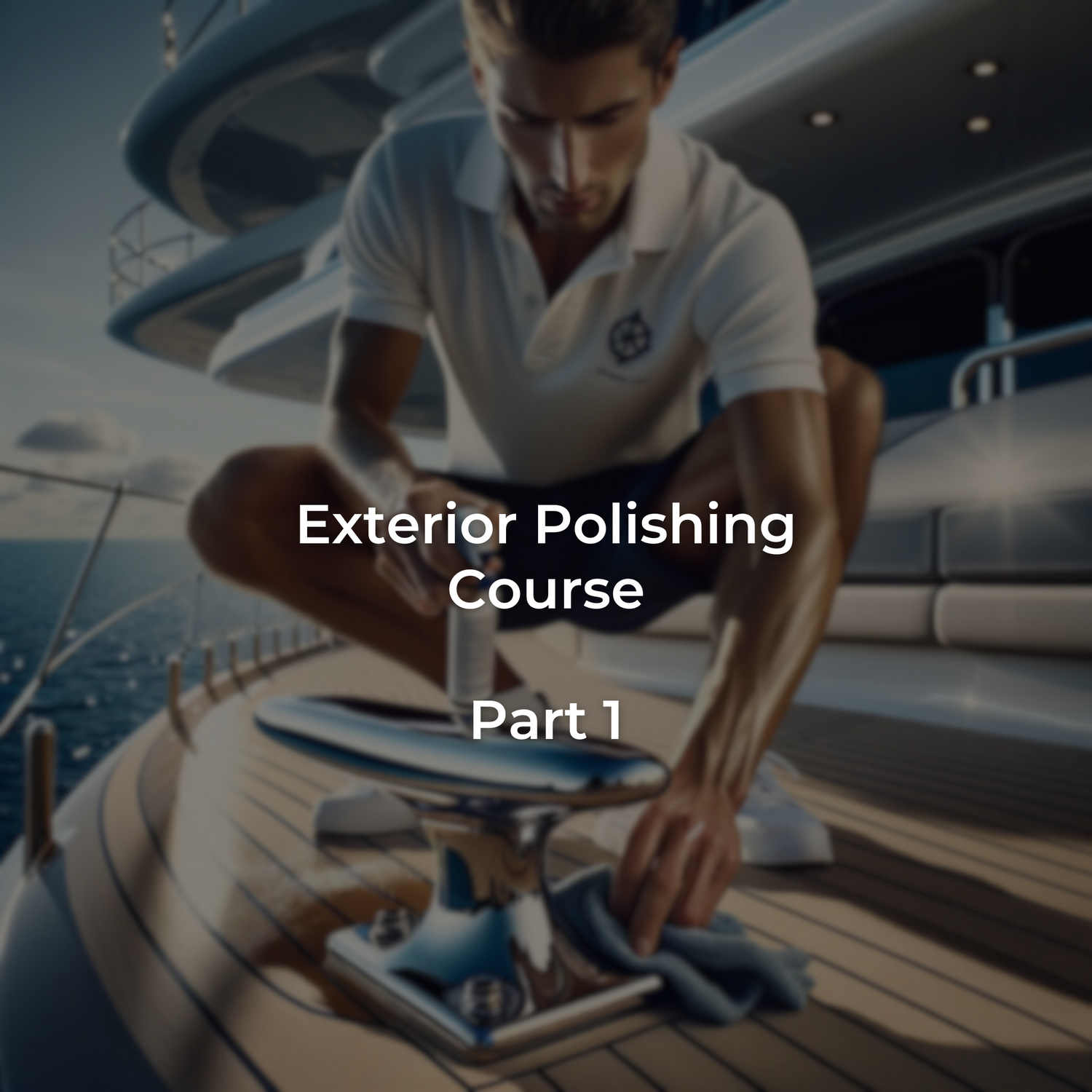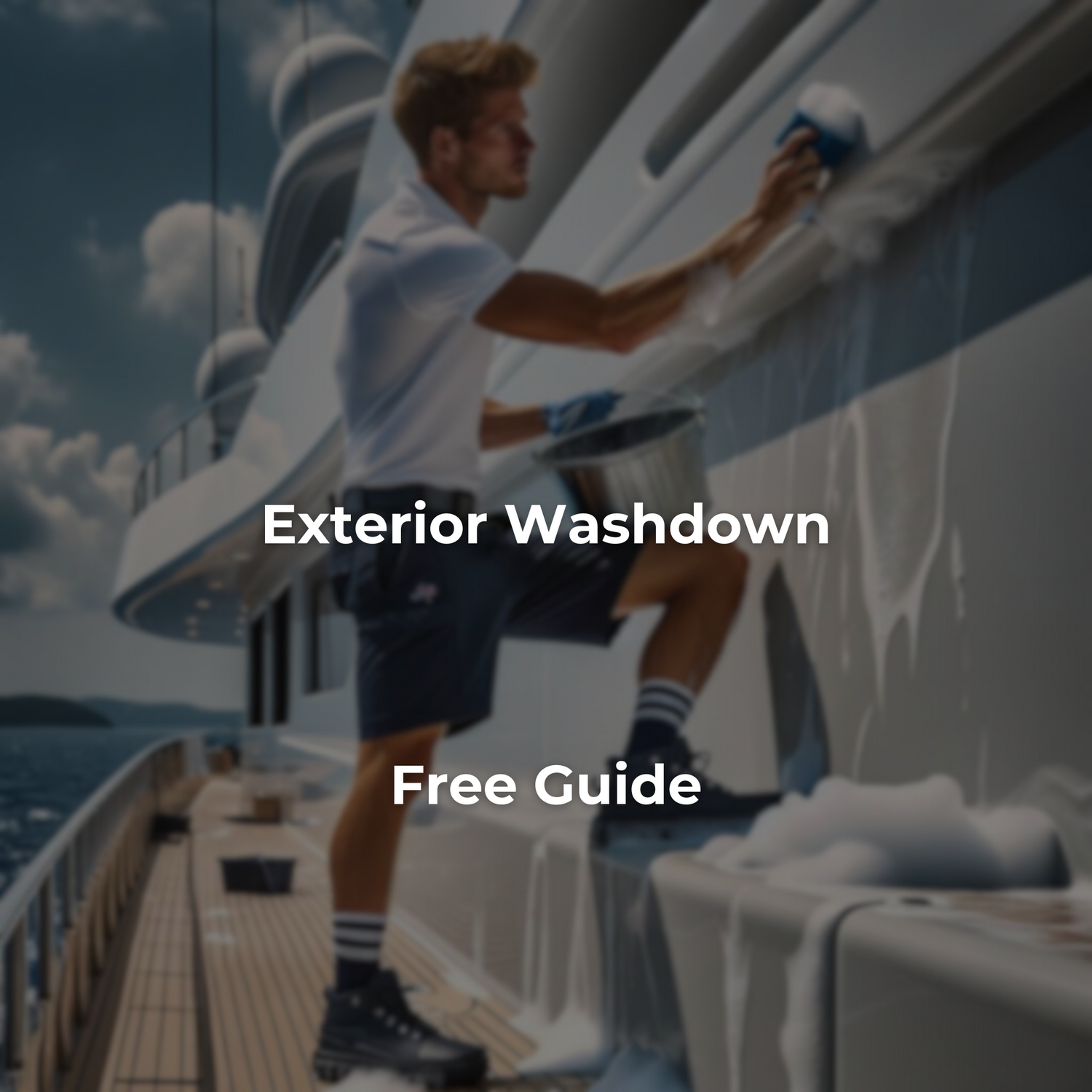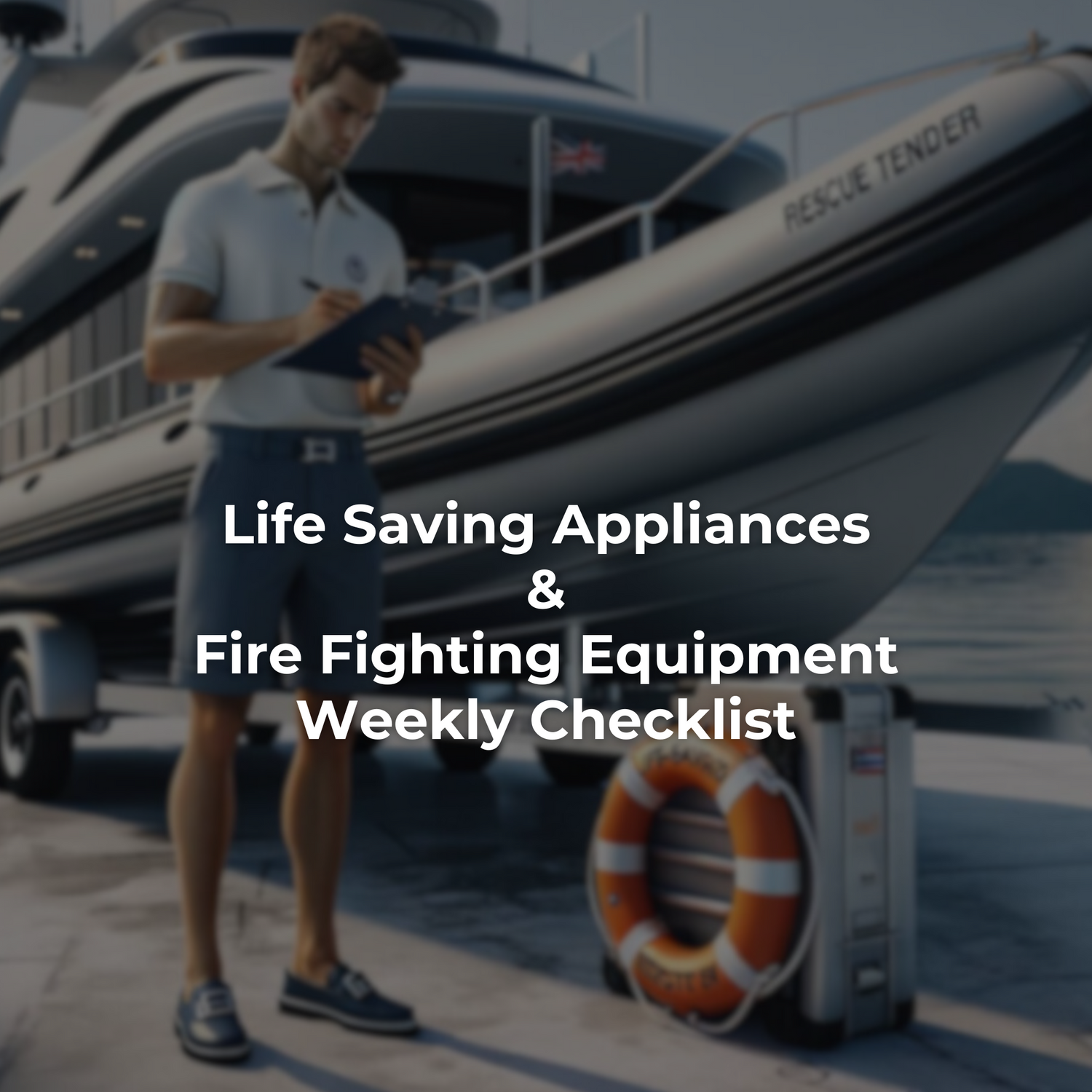In the yachting industry, life aboard offers unique experiences—from financial freedom and global travel to deep camaraderie with fellow crew. Yet, for many, the day comes when the allure of the salty life gives way to the desire for stability, family and a more grounded lifestyle.
Today, we are joined by Amelia Hilton Pierce, founder of Shoreside Coaching and a seasoned expert in helping yacht crew navigate the often complex transition from sea-based roles to thriving land-based careers. Drawing from her extensive personal and professional experience, Amelia specializes in empowering crew to leverage their transferable skills, rediscover their identity beyond the uniform, and anchor themselves in a fulfilling new chapter of life.
In our Q & A with Amelia, we explore some of the strategies, insights, and inspiring stories that can guide yacht crew through this transformative journey.

The Transition: From Yacht Crew To Land Life
Q: From your experience, what are the most common reasons yacht crew feel the call to transition from sea life to a land-based career? Are there particular turning points that seem to resonate across the board?
A: From my years of experience in the industry, I've noticed that the decision to transition from sea to land usually comes from a deeply personal place. Most commonly, crew members reach a point where they feel the pull to set down roots and start a family - something that becomes increasingly challenging while living at sea. There's often a moment when they realize that the industry no longer aligns with their core values, or they simply grow tired of living out of a suitcase. Many crew members, especially those who started young, begin yearning for a career that feels more meaningful and better aligned with who they've become as a person.
I've particularly noticed this pattern with interior crew. There comes a turning point where the desire to build deeper, more meaningful connections becomes overwhelming. Those who entered the industry in their early twenties often find themselves outgrowing it as they approach their thirties. Suddenly, their core values - things like family, privacy, having a sense of purpose, maintaining a regular routine, and achieving real stability - start taking precedence over the excitement and financial benefits of yachting life. It's almost like waking up one day and realizing you've evolved beyond the lifestyle that once felt so perfect.
Q: For crew members with years of unique experiences, like financial stability, cultural insights, and bonds beyond borders, what aspects of their yacht life do you encourage them to carry forward as they establish a new identity on land?
A: When crew members transition to land, they bring with them an incredible toolkit of experiences and attributes that can truly set them apart in their new life. I always encourage them to recognize and nurture these qualities. Long-term yacht crew typically develop an exceptional level of motivation and drive that's quite rare in land-based industries. They possess this remarkable ability to adapt to new situations and handle whatever curveballs life throws their way - a skill that's invaluable no matter where you go.
What's really special is their proven track record of pushing themselves to be the best version of themselves, along with the stamina they've developed to get through tough times. These aren't just professional skills - they're life skills that can help them thrive in any environment. The global perspective they've gained, their ability to work with people from all walks of life, and their understanding of different cultures are all incredible assets that can enrich their personal lives and professional careers on land.
Q: What strategies do you recommend for those struggling with the ‘identity paradox’—moving from a life defined by the role on a yacht to rediscovering who they are outside of that world?
A: The identity paradox in yachting is something that really hits hard for many crew members. Think about it - you go from being part of this incredible, tight-knit community where your identity is so clearly defined, to suddenly watching it all from the outside. When you're in the industry, you can walk into any port, like Antibes, and immediately have something in common with everyone you meet. You belong to this special tribe - you're a yachtie, and that means something.
But when you transition to land, watching your old life continue on Instagram, seeing all the highlights of everyone's experiences - it can leave you feeling really isolated, like you're no longer part of that special community anymore. The FOMO is real, and it can feel like you're suddenly sitting on the sidelines of your own life. That's why I always advise crew members to use their time on board wisely. Take those quiet moments to really get to know yourself. Go on solo trips when you can, dive into some thought-provoking books, create vision boards - really think about who you are beyond your role on the yacht. Ask yourself those big questions: What are your true aspirations? What kind of person do you want to be? If you weren't a yachtie, what would light you up inside?

Q; The connections made at sea are deep but often transient. How can yacht crew cultivate more lasting, authentic relationships and local community connections once they transition to land life?
A: The way connections form at sea is truly unique - you can bond with someone instantly over something as simple as sharing a midnight watch or having a mutual dislike of early morning tender runs. You're living, eating, and breathing with these people, and that family-like atmosphere develops almost immediately. But here's the thing about land-based relationships - they typically don't happen that quickly, and that's okay.
If you're lucky enough to return to an area where you grew up or previously lived, you might have some old connections to rebuild. But if you're starting from scratch, which many of us do, you need to be strategic about building your new social circle. It all comes down to really tapping into what genuinely interests you. Are you into sports? Join a local team. Love art? Sign up for that pottery class you've always been curious about. Not sure where to start? Community activities are fantastic, or you might want to try friendship-finding apps like Bumble BFF. The key is to put yourself out there and be willing to initiate conversations. Remember, these connections might take longer to develop than those instant yacht bonds, but they often end up being deeper and more lasting because they're built on shared interests rather than shared circumstances.
Q: You mentioned the ‘freedom of choice’ that land life offers. Could you share some real-world examples of crew who’ve successfully created a lifestyle that reflects their true self post-yachting?
A: I've seen some really inspiring transformations among former yacht crew, and one pattern that often emerges involves breaking free from the social patterns that can develop in yachting. Let's be honest - there's often a pretty intense drinking and socializing culture on yachts, and sometimes that extends to recreational drug use. I know quite a few crew members who used to be caught up in that cycle - going out heavy on Tuesday nights, waking up with anxiety the next day, hating who they were the night before - but have since created much healthier, more aligned lives for themselves.
Speaking from personal experience, when I was on yachts, I felt like I was constantly adapting my personality to fit whatever situation or whoever I was talking to. I was always 'on,' always trying to be someone that others would like and respect. But since transitioning to land, I've developed much stronger boundaries. I've really gotten to know myself, and perhaps most importantly, I care so much less about what others think of me. I no longer feel the need to adapt myself for others - I'm authentically me, quirks and all. And you know what? If people don't resonate with that, that's absolutely fine! It's actually quite liberating to realize that not everyone has to be in your tribe.

Q: Yacht crew acquire an impressive range of ‘transferable superpowers,’ such as high-stress management and adaptability. What industries or roles have you seen crew transition into where these skills are particularly valued and rewarded?
A: There are many transferrable superpowers from working at sea to working on land. Think about it - yacht crew can adapt to almost any situation, whether it's working in law enforcement, running their own business, or managing high-pressure corporate environments. There's this unique resilience that develops in yachting that you just don't find in the general population.
I mean, who else can maintain their composure and keep a smile on their face after being berated by an owner for hanging their jacket in the wrong order? Or sit down to lunch and have a pleasant conversation with the chief officer you just had an heated argument with? These experiences build an incredible emotional intelligence and resilience that can take you far in any career. Your people skills are a huge asset, especially in service-based industries, and your industry knowledge can be invaluable in yacht-adjacent fields like refitting work or brokerage. You understand the terminology, the expectations, and most importantly, you know what excellence looks like.
Q: The financial independence that yachting can provide is unique. How can crew best leverage this advantage when planning their exit strategy, whether it’s for entrepreneurial ventures, investments, or other pursuits?
A: When it comes to planning your exit strategy, having a solid financial plan is absolutely crucial. I always advise crew members to have at least six months of savings set aside before making the transition. The yachting industry provides unique opportunities for financial growth, and there are so many resources available now for crew to make smart investments, whether it's in stocks and shares or property investments to ensure you have passive income when you leave.
But here's the thing - and I can't stress this enough - don't fall into the trap of living like the people you work for. Just because you're surrounded by luxury doesn't mean you need to match that lifestyle. Skip that Michelin-star restaurant splurge, think twice about buying rounds at expensive bars, and maybe reconsider using those charter tips for the latest Gucci bag. Remember, you don't own the superyacht - you work on it. The key is to leverage your unique financial position to build a sustainable future, not just maintain a temporary luxury lifestyle.

Q: Yachting often fosters a close-knit, supportive crew dynamic. What challenges do individuals face in finding similar support systems on land, and what resources or networks do you recommend for ex-yacht crew?
A: Let me share a personal story about this. When I moved to Dorset about three years ago, I was on a 2:2 rotation and literally knew no one except my sister. During my two months off, I found myself at a complete loose end, either traveling up to London or to different countries to see other yachties who were off at the same time. I tried using Bumble BFF to meet people, going on dog walks with other girls who'd moved to the area, but I wasn't really clicking with anyone.
Then I decided to try something completely new - I joined a netball team, despite never having played before, and I made a few friends from my team. While on board, I mentioned to a crewmate that I was struggling to make friends at home, and she connected me with someone in my area who'd just moved there too. We met up and instantly clicked. From there, things started snowballing in a good way. We'd go to the pub together, do activities, meet new people along the way. Three years on, I've built this beautiful group of friends. Yes, it was a slow burn at first, but now I have this tribe of similarly quirky people who enjoy the same things I do. The connections are strong and genuine, but they took time to develop.
Q: With the desire to settle down and put down roots, what advice would you offer to someone feeling apprehensive about building stability after a nomadic lifestyle?
A: The key thing I've learned is that you need strong motivators in place to remind you why you're making this transition. These motivators become your anchor during the challenging times, keeping you focused on your goals and your new life. For me, I knew for years that I wanted to leave the industry at 30, no matter what. I wanted to settle down and build a base for myself. The interesting part was that I actually loved my job on yachts and definitely loved the financial stability it provided. But I knew if I didn't make a clean break and commit 100% to leaving, I'd keep going back.
Here's what really worked for me - I got a cat (which actually turned into two cats!) when I first moved back. This might sound simple, but it was a brilliant strategy because I knew there was no way I could go back to yachting with these little dependents needing me. When I'd watch my friends traveling the world and spending freely, feeling that twinge of jealousy, I'd look at my cats and remember why I chose this path. Sometimes you need these tangible reminders of your choices to keep you grounded in your decision.
Q: Finally, many may feel overwhelmed by the scope of this transition. What practical steps or mindset shifts do you believe are essential in making this shift less daunting and more empowering for yacht crew?
A: The most crucial thing I've learned is that you really need to want this change - it can't be a half-hearted decision. Set a date for when you want to be home and stick to it. Yes, there will be numerous temptations to return to the industry, and that's completely normal, but stay aligned with what you truly want. Remember, the yachting industry isn't going anywhere - you can always find temp work during busy periods if you really need to.
The rewards of being at home, doing something you love with the people you love, are incredibly meaningful. But here's the reality check - you won't find this fulfillment immediately. It might take months, even years, to build the life you envision. The key is being 100% committed to your decision to leave. If you're certain about your choice and willing to weather the adjustment period, you'll find that the satisfaction of building a stable, meaningful life on land can far exceed the excitement of yacht life. It's about trading one type of adventure for another - just a more grounded, long-term one.
We invite you to discover ways to help your transition HERE: https://www.shoresidecoaching.com




